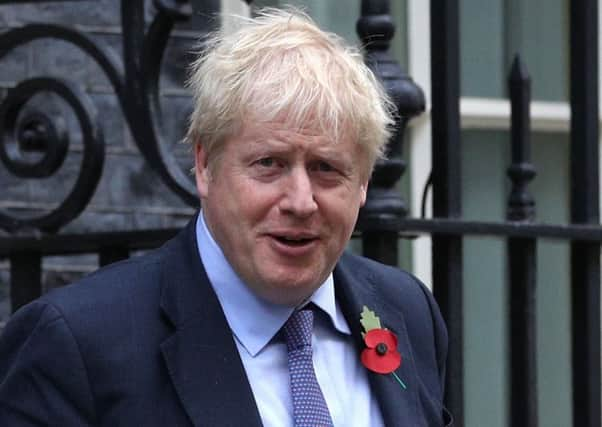General Election 2019: Results hard to predict, says Sir John Curtice


Even allowing for losses to the SNP and a resurgent Liberal Democrat party, that should be more than enough for a secure overall majority.
However, Britain’s voters are as volatile as they have ever been. According to the British Election Study, nearly half (49 per cent) of all those who voted in 2017 voted for a different party from the one that they backed in 2015. Never have so many voters changed their minds from one election to the next. Indeed, many changed their minds during the two months between Theresa May instigating the 2017 election and polling day.
Advertisement
Hide AdAdvertisement
Hide AdSuch dramatic movements are possible because only around one in ten of us think of ourselves nowadays as very strongly “Labour”, “Conservative”, “Nationalist” or whatever. The trip to the polling station isn’t so much an opportunity to affirm a tribal loyalty as an opportunity to make a choice.
Yet identity has not disappeared from our politics. As many as two in five of us consider ourselves to be a very strong “Remainer” or a very strong “Leaver”.
However, this will not ensure that voters are less volatile in their party preference this time around. Even if they are determined to vote about Brexit – and not everyone will – both Remainers and Leavers have more than one choice.
Leavers have to decide whether to back Boris Johnson and his Brexit agreement or Nigel Farage’s Brexit Party and its argument that the UK should leave without a deal.
Remainers south of the border have to decide whether to back the Liberal Democrats who propose Brexit should be cancelled, and Labour who support a second Brexit referendum but are not explicit about which option they would back. In Scotland Remainers also have the SNP’s policy of backing Remain in a second referendum.
These different standpoints leave plenty of room for voters to change their minds – as the surge in Brexit Party and Liberal Democrat support during the European Parliament election campaign in May testified.
Indeed, the outcome of this election is likely to turn on whether Johnson can maintain the squeeze on the Brexit Party vote his party has enjoyed among Leave voters since becoming Prime Minister and on the ability of Jeremy Corbyn to recapture some of the Remain voters his party has lost to the Liberal Democrats. Even an electorate polarised by Brexit still has plenty of potential to change its mind.
• John Curtice is Professor of Politics, Strathclyde University and Senior Research Fellow, ScotCen Social Research and The UK in a Changing Europe